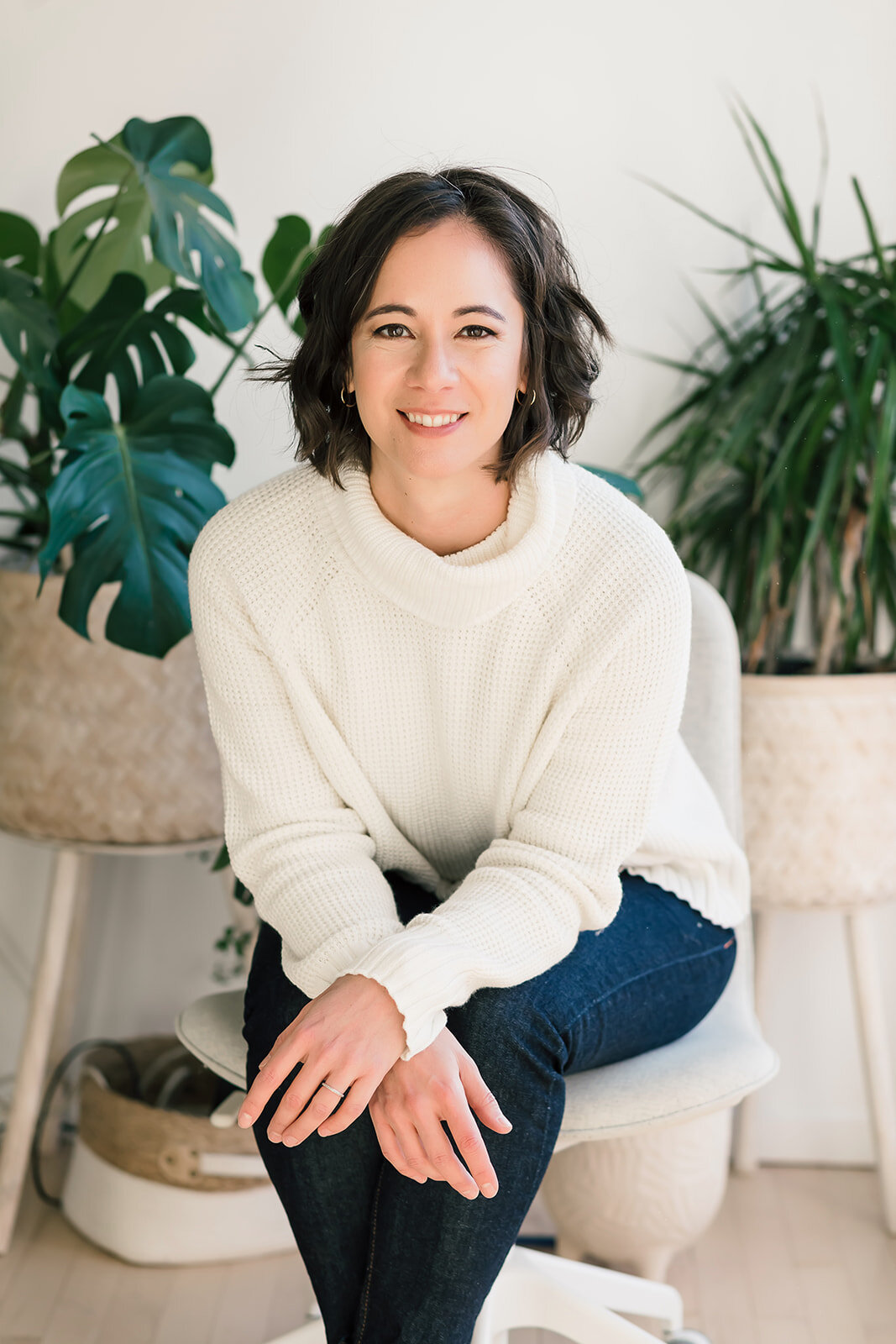
Why work with a Registered Dietitian AND a Clinical Counsellor?
Because you need to let go of shame, not learn how many calories are in corn.
I’m Jessica and I am a Registered Dietitian and a Registered Clinical Counsellor. I have been working in the area of disordered eating and within eating disorders treatment programs since 2006.
My double qualifications make me uniquely suited to help my clients address the psychological issues that underpin their challenges with eating. I work from a trauma-informed, emotion-focussed, weight-inclusive and weight-neutral, anti-diet or non-diet approach .
My approach allows my clients to live their lives to the full by unshackling their beliefs that diet culture has taught them about how they should eat and treat their body. We work together to find a way of eating that creates happiness, peace and cares for both their mental and physical health.
I delight in helping my clients find their way to love themselves, their bodies, their culture, and their history. It is deeply enriching work and I feel lucky to be a part of their journeys.
Sign up for my Fall Connected Eating Workshop!
Registered dietitian vs. nutritionist
Dietitians have a degree in food and nutrition from an accredited university program and undergo comprehensive and rigorous training. Just like all regulated health professionals (such as doctors, nurses and physiotherapists) dietitians are committed and required to stay on top of emerging research, skills, and techniques.

What’s a Registered Clinical Counsellor?
Registered Clinical Counsellors have a Master’s Degree in a variety of areas such as psychology or social work. Many have additional training in their specific area of practice. They have also satisfied clinical supervision requirements that are criteria of registration.
My own journey
Growing up in a Chinese household, one of the primary messages in our home was this: food is the conduit for love. My mother is Chinese, so we adopted much of her tradition around food.
In our house growing up, we were taught to use food as a way to show love and respect for others. There was always an abundance of food and an abundance of love. But growing up with Chinese traditions in Canada, helped me to see that there are varied ways of eating, celebrating with food, and relationships with bodies. This type of love and self-care is something I want to pass on to my clients.
Because of my upbringing and because of the wonderful clients I have worked with, it’s important that I both acknowledge my privilege and how I create a safe space for all people.
I am straight-sized and able-bodied, cis-gender, heterosexual, and white-passing (though am of mixed heritage: white settler and first-generation Chinese immigrant).
I also acknowledge I have many privileges that result from living and working on the traditional, ancestral and unceded territory of the Coast Salish peoples–Sḵwx̱wú7mesh (Squamish), Stó:lō and Səl̓ílwətaʔ/Selilwitulh (Tsleil-Waututh) and xʷməθkʷəy̓əm (Musqueam) Nations.
I endeavor to be an ally and active supporter for all people, in both my personal life and workspace, who are working to create a life for themselves that does not include oppression, domination, or colonialism.
My credentials + experience
Bachelor of Science, Biology from Simon Fraser University
Bachelor of Applied Science, Food and Nutrition from Ryerson University
Master of Counselling Psychology from the University of Calgary
I have worked in the field of eating disorders treatment since 2006. Specifically, I have worked with the Vancouver Coastal Health Eating Disorders Program in Richmond for 9 years, the Fraser Health Eating Disorders Programs for 3 years, and the internationally renowned Community Outreach Partnership Program for Vancouver’s St. Paul’s Hospital Eating Disorders Program for 4 years.
Who I see

My mission
“To help my clients learn how to listen to and care for their body by unlearning the pervasive messaging from the oppressive diet culture. To break the shackles of fat-phobia, transphobia, and racism. To help my clients feel like their bodies are good and healthy, so they know they are worthy and enough.”








